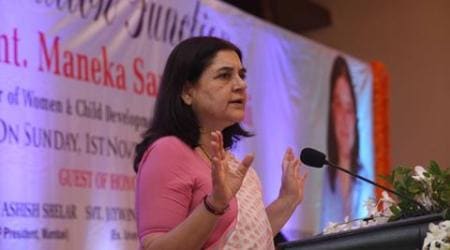 Section 375 of the IPC dealing with rape makes an exception for such instances within marriages and holds that “sexual intercourse by a man with his own wife, the wife not being under 15 years of age, is not rape” (Representational Image)
Section 375 of the IPC dealing with rape makes an exception for such instances within marriages and holds that “sexual intercourse by a man with his own wife, the wife not being under 15 years of age, is not rape” (Representational Image)
STATING THAT what “may appear to be marital rape” to a wife “may not appear so to others”, the central government took a stand against criminalising marital rape, in its affidavit to the Delhi High Court, on the grounds that it “may destabilise the institution of marriage apart from being an easy tool for harassing the husbands”. “As to what constitutes marital rape and what would constitute marital non rape needs to be defined precisely before a view on its criminalisation is taken,” states the Centre’s affidavit.
It goes on to cite the “rising misuse of section 498A of IPC”, commonly known as the dowry law, to demonstrate how laws dealing with violence against women can be misused “for harassing the husbands”. The central government was responding to a petition filed by the RIT foundation, which wanted marital rape to be legally recognised and made a punitive offence.
Section 375 of the IPC dealing with rape makes an exception for such instances within marriages and holds that “sexual intercourse by a man with his own wife, the wife not being under 15 years of age, is not rape”. No other statute or law recognises marital rape, and victims presently only have recourse to civil remedies provided under the Protection of Woman from Domestic Violence Act, 2005. The Centre’s affidavit holds that states should implead in the matter, since criminal law is on the concurrent list and implemented by states — and given the vast diversity in cultures across states.
“That the fact that other countries, mostly western, have criminalised marital rape does not necessarily mean India should also follow them blindly. This country has its own unique problems due to various factors like literacy, lack of financial empowerment of the majority of females, mindset of the society, vast diversity, poverty, etc., and these should be considered carefully before criminalising marital rape,” it states. The Justice Verma committee, formed in the wake of the 2012 Delhi gang-rape, had recommended removing the exception made for marital rape in the law.
Similarly, the report ‘Status of Women in India’, by the high-level Pam Rajput committee of the Ministry of Woman and Child Development, criticised the legislature for its failure to criminalise or even recognise marital rape in the Criminal Laws (Amendment) Act 2013 enacted following the Justice Verma committee report.
The Centre, in its submission to the Delhi High court, stated that the judgment as to whether a sexual act is a marital rape or not will entirely rest with the wife. “The question is what evidences the courts will rely upon in such circumstances as there can be no lasting evidence in case of sexual acts between a man and his own wife,” it states.
The submission adds that the Law Commission on Review of Rape Laws and the Department-Related Parliamentary Standing Committee on Home Affairs have examined the issue but not recommended the criminalisation of marital rape. The Centre has instead advocated the need for “moral and social awareness” to stop such an act.
